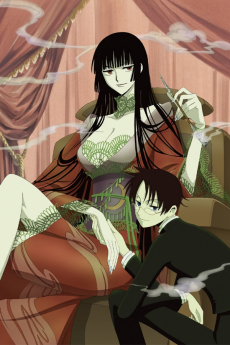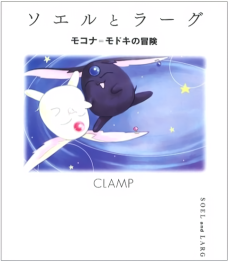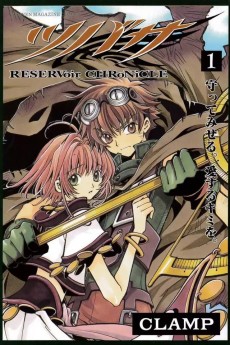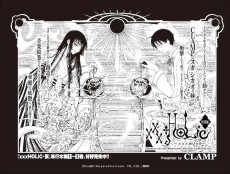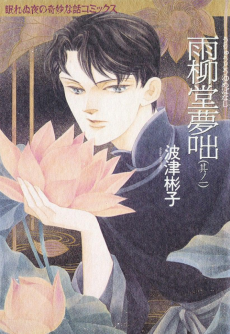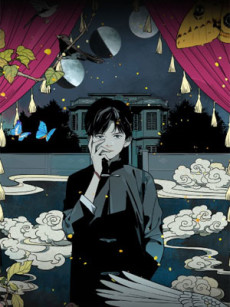XXXHOLIC
STATUS
COMPLETE
VOLUMES
19
RELEASE
February 9, 2011
CHAPTERS
214
DESCRIPTION
Kimihiro Watanuki is haunted by visions of ghosts and spirits. He seeks help from a mysterious woman named Yuko, who claims she can help. However, Watanuki must work for Yuko in order to pay for her aid. Soon Watanuki finds himself employed in Yuko’s shop where he sees things and meets customers that are stranger than anything he could have ever imagined.
(Source: Kodansha USA)
Notes:
- The series was re-named to xxxHolic•Rou on chapter title pages of chapter 186 and on, but not on their volume's front covers, spines and indicia.
- The chapter count contains a one-shot published in May 2010 to commemorate the switch, which was later collected into Volume 18.
- The chapter count also reflects the magazine releases; the chapters plus the one-shot were re-arranged into 109 chapters across 19 volumes.
CAST
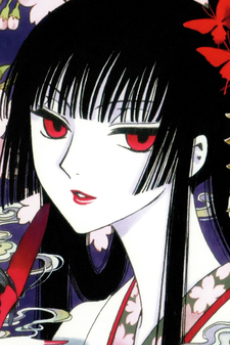
Yuuko Ichihara
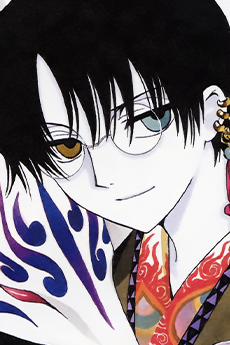
Kimihiro Watanuki
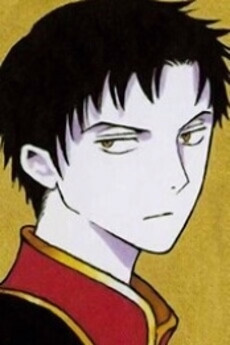
Shizuka Doumeki

Himawari Kunogi
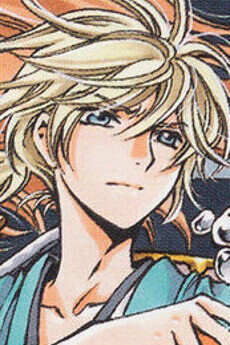
Fai D. Flourite
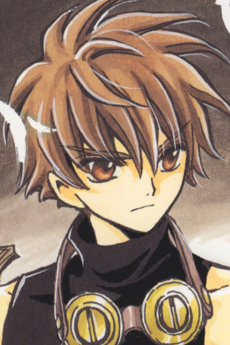
Syaoran
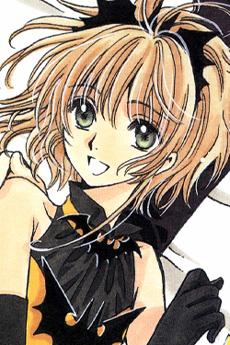
Sakura

Kurogane

Syaoran Li
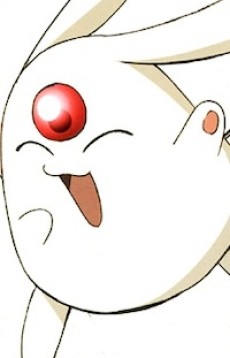
Mokona Modoki
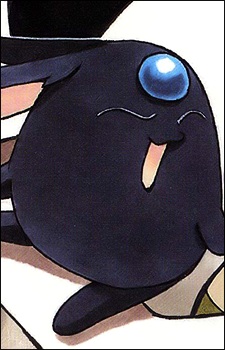
Mokona Modoki
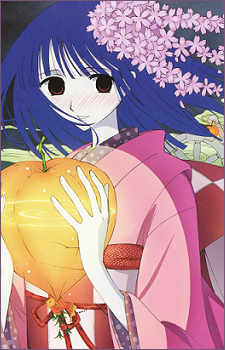
Zashiki-warashi
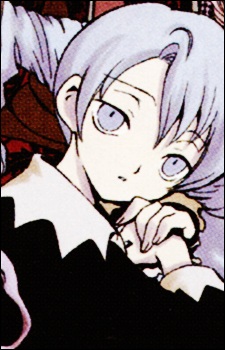
Maru
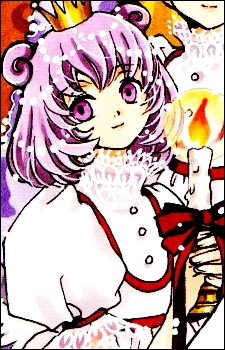
Moro

Clow Reed
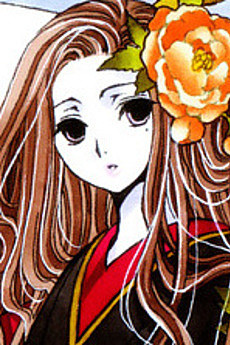
Kohane Tsuyuri
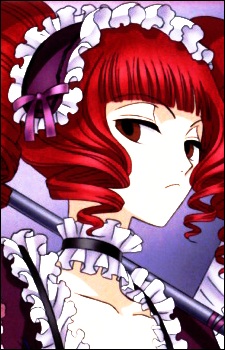
Ame-warashi
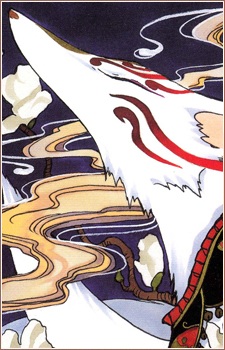
Mugetsu

Kazahaya Kudou
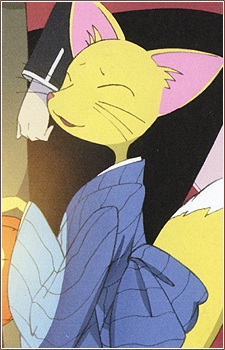
Chibi Kitsune

Jorougumo
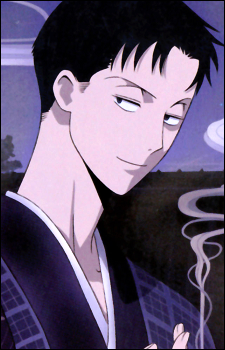
Haruka Doumeki

Neko-musume

Rikuou Himura
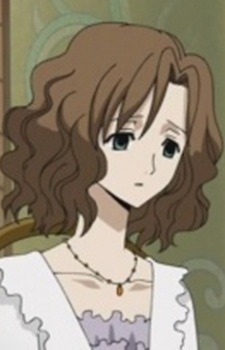
Rin
CHAPTERS
RELATED TO XXXHOLIC
 OVA ComedyxxxHOLiC Shunmuki
OVA ComedyxxxHOLiC Shunmuki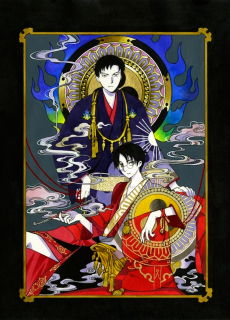 OVA MysteryxxxHOLiC Rou
OVA MysteryxxxHOLiC Rou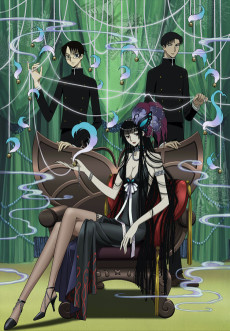 ANIME ComedyxxxHOLiC◆Kei
ANIME ComedyxxxHOLiC◆Kei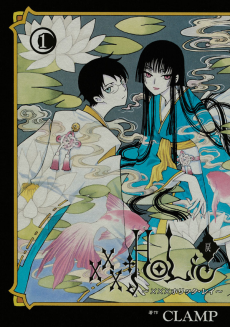 MANGA DramaxxxHOLiC: Rei
MANGA DramaxxxHOLiC: Rei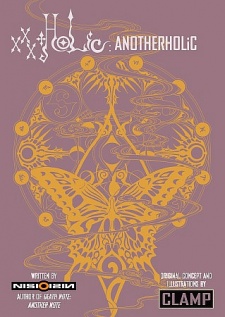 NOVEL ActionxxxHOLiC: AnotherHOLiC
NOVEL ActionxxxHOLiC: AnotherHOLiC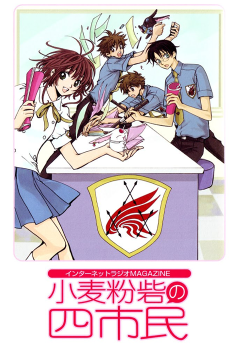 MANGA ComedyHoritsuba Gakuen
MANGA ComedyHoritsuba Gakuen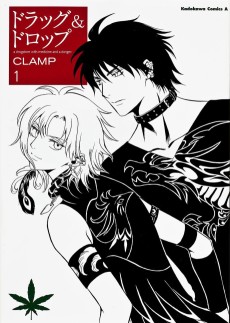 MANGA MysteryDrug & Drop
MANGA MysteryDrug & DropREVIEWS

SeaU
100/100CLAMP et la Nature HumaineContinue on AniListDerrière ce titre un peu pompeux se trouve moins une review d'XXXHolic qu'une review de CLAMP en général, ou du moins de que j'ai saisi de leur écriture. Je vais essayer de retranscrire à l'écrit les forces de CLAMP, qui sont déjà présentes depuis leur début en vérité, ou au moins depuis Tokyo Babylon, en m'appuyant sur XXXHolic, car je considère cette œuvre comme étant l'apothéose de ce que propose CLAMP. Il va sans dire que je me base uniquement sur ce que j'ai lu de CLAMP, c'est à dire une dizaine d'œuvres, ce qui est dérisoire par rapport à tout ce qu'elles ont pu produire. Je pense néanmoins être capable de saisir, au moins en partie, ce que veulent raconter les dames de CLAMP au travers de leurs histoires.
J'ai évoqué Tokyo Babylon plus haut, ce n'est pas anodin. Selon moi, la série à beaucoup de points communs avec XXXHolic, jusqu'à dans son concept même, alors que 13 ans sépare les débuts de parutions des deux œuvres. En effet, à la fois dans Tokyo Babylon et dans XXXHolic, le ou les protagonistes vont régler différents problèmes, touchant de près ou de loin des humains, et ayant un rapport avec le domaine du surnaturel. Ces problèmes, bien qu'ayant des origines fantastiques, s'apparentent à des problématiques de notre vie réelle. De par son rapport au surnaturel et ses parallèles avec la vraie vie, Tokyo Babylon apparaît presque comme un proto-XXXHolic dans sa structure. Mais en vérité ce sont des thèmes qui reviennent dans plusieurs séries de CLAMP, mais au travers de structures narratives différentes. Que ce soit les différents villages visités dans Shin Shunkaden, ou les différents monde de Tsubasa: RESERVoir CHRoNiCLE, CLAMP s'est attacher à explorer toute une palette de facettes des comportements humains, et ce qui ressemblait à des morales de fables dans Tokyo Babylon finit par devenir beaucoup plus subtil et prenant dans XXXHolic. Et ce qui frappe le plus dans cette série là, c'est quand on se rend compte d'à quel point les humains sont des êtres contradictoires.
Du groupe de héros luttant contre un futur qu'ils savent déjà écrit dans X, à la femme luttant contre une addiction "par principe" dans XXXHolic, en passant aux souhaits des personnages de Clover ou aux volontés de ceux de Tsubasa: RESERVoir CHRoNiCLE, tout n'est qu'une simple histoire de contradiction. Des contradictions qu'on s'impose parfois nous même, par résignation ou par égoïsme. C'est ce que CLAMP nous montre, et elles nous le montre de la façon la plus élégante qui soit, élégance portée par leur style de dessin. Cependant, cette contradiction qui nous semble inhérente n'est pas montré de façon péjorative, bien au contraire. J'ai évoqué X et le "futur" censé inévitable contre lequel lutte les héros, il se trouve que c'est une notion qui reviens souvent dans les longues œuvres de CLAMP. Les personnages des différentes séries sont souvent confrontés à une destinée pré-écrite, et autant dans X on ne saura probablement jamais comment se termine l'histoire, dans Tsubasa: RESERVoir CHRoNiCLE, les héros finissent par briser le cycle dans lequel ils étaient enfermés. Ou encore dans Magic Knight Rayearth, les héroïnes parviennent à briser le système du pilier, et à se rebeller contre Dieu lui-même. Quand quelqu'un parvient à pénétrer dans l'échoppe de Yuuko, c'est l'"Hitsuzen" qu'il l'a guidé.

Un concept qui s'apparente donc à la fatalité. Cependant, si c'est bien l'Hitsuzen qui guide les gens vers le magasin, à la fin de la journée, c'est bien à la personne elle même de décider de régler, ou non, son problème. La fatalité n'est pas immuable. Malgré les problèmes et les conditions que nous impose la vie, indépendamment de notre volonté, il ne tient qu'à nous de décider comment les aborder. Et là vient un autre thème cher à XXXHolic : le choix. Comme le dit l'adage : "on a toujours le choix". Mais choisir, c'est aussi renoncé à autre chose. Ne pas choisir est un choix en soit, on renonce à ce que l'on pourrait devenir. D'ailleurs, les clients qui trouve l'échoppe de Yuuko doivent laisser quelque chose en échange de ses services, et ce quelque chose s'apparente à chaque fois à une part, à un morceau - même symbolique - de la personne. Et face à un choix, on dispose toujours d'une liberté absolue. En extrapolant, on pourrait rapprocher tout ça à la philosophie existentialiste de Jean-Paul Sartre. Pour résumé grossièrement, selon Sartre, nous sommes de mauvaise foi si on justifie nos choix par des éléments qui nous sont indépendants, que l'on a pas choisi. Si nous faisons preuve de mauvaise foi, c'est avant tout parce que la liberté dont nous disposons pour choisir est tellement vertigineuse qu'elle nous effraie. Comme le résume assez bien cette citation de Sartre : "L'homme est condamné à être libre". Mais je ne sais pas si les CLAMP ont lu Sartre.
Une autre façon de démontrer nos contradiction dans XXXHolic qui m'a marquée, c'est la propriété de notre corps. Il se trouve que nous ne nous appartenons pas totalement. C'est ce que Yuuko fait remarquer à Watanuki lorsque ce dernier se blessa en venant en aide à l'un de ses proches pour la énième fois. Se blesser, ou se laisser blesser plutôt, tient plus de l'égoïsme que de l'altruisme. Si l'on se blesse, c'est pour ne pas voir les autres blessés à notre place, mais en faisant cela, on impose nos blessures aux autres. Ces derniers, dans une logique de contrebalance, vont alors se laisser blesser à leur tour "pour nous", mais surtout pour eux. Si c'est un thème qui, je crois, reviens finalement assez souvent dans tout type d'œuvres, c'est bien dans XXXHolic que je l'ai trouvé le plus percutant, faisant ressortir notre égoïsme. Mais à l'instar de notre nature contradictoire, notre égoïsme n'est pas montré de façon péjoratif.
Lors de ma lecture de XXXHolic , je me suis rappelé la pièce de théâtre Antigone de Jean Anouilh, que j'ai étudié au collège. A l'époque on m'avait grosso modo appris que c'était une ode cachée à la résistance maquillée en propagande pro-occupation. Aujourd'hui, je la considère comme étant plus que ça. Les personnages d'Antigone, d'Ismène et de Hémon qui font le choix de se battre contre ce qui va de soit, puis de mourir pour ça, la mort de l'une entraînant celle des autres. Au cours de la pièce, je me souviens qu'Antigone est au moins une fois accusée d'être égoïste, ce à quoi elle répond qu'elle en est fière (en gros, je me rappelle plus trop j'avoue). Pourquoi était-elle fière d'être égoïste ? J'avoue ne pas avoir compris durant longtemps pourquoi revendiquer ce qui est considéré comme tout le monde comme une défaut, mais maintenant je me dis qu'être égoïste, finalement, c'est pas si mal.
Et c'est pour ça que j'adore XXXHolic , et plus généralement CLAMP. En plus de m'offrir de nouvelles perspectives par lesquelles aborder la vie, elles m'aident à comprendre des choses que j'ai vécues et qui m'ont marquées sans que je ne sache pourquoi. J'ai parlé de Sartre et Anouilh, mais c'est également d'autres mangas qu'elles m'ont aidé à mieux comprendre, et donc à mieux apprécier. Des mangas dont elles ont sûrement inspirées la création d'ailleurs, comme Pandora Hearts de Jun Mochizuki. Que ce soit dans le propos, la narration, voir même le trait, j'ai senti le long de ma lecture une vibe très CLAMP-esque. Les thèmes mentionnés plus haut sont au centre des problématiques de Pandora Hearts, même s'ils sont abordés de manière moins subtile et dans un cadre plus shonen.
CLAMP, malgré les différents mondes et les différents contextes qu'enrobent leurs différentes œuvres, c'est bien l'humain qu'elles s'attachent à placer au centre de leurs histoires.

ZNote
80/100Inevitably granting wishes and changes, one not-coincidence at a time.Continue on AniList×××HOLiC seems to defy any real sense of simplistic genre classification, and that’s a good thing. Given the sheer breadth of its surreal dives into the darkly fantastical, the comic, and the serious, it seems to have all its conventional genre labels connected to one another in inseparable ways. It makes its home in a strange twilight zone. But no matter what particular style or tone it is going for at any given moment, it always seems to move in sneakily smooth motions of change rather than being plopped down from out of nowhere. It sows seeds early that germinate into their fuller blooming later, and at the center of its blooming lies a certain shop that grants any wish. For Kimihiro Watanuki, plagued by spirits that he cannot seem to get rid of, he comes across the shop’s proprietress, the sake-loving, coy, and outright mysterious Yuuko.

(From her early introduction, Yuuko’s physical presence as depicted by CLAMP intrigues the eye with excess, texture, and smoke. As Watanuki enters the shop, we enter a world as seen through Yuuko’s strange, mystifying allure and gaze) To see the world through Yuuko’s eyes is to be made keenly aware of, to put it in rather odd words, “the relationship between everything and everything.” Every step, blink, word, and thought has a resonance and a meaning, a cause and effect that vibrates and changes the surrounding universe. Whether that meaning is immediately known to us or if it causes consequences that we ourselves are not aware of varies depending on the circumstance. ×××HOLiC makes its narrative out of this idea, and it proves delightfully malleable regardless of your own personal history. After all, there is no one, singular real-world ideology that monopolizes these thoughts. Many of the world’s religions, psychoanalytical theories, and philosophies imply—if not outright state in their texts—an inherent connection between the material and the spiritual, the natural and the supernatural, how the weight of one’s actions and thoughts dictates life’s destiny, or whether there are no coincidences and that everything is inevitable or predetermined (the question of personal agency).
One could easily map Jung’s synchronicity idea, Sartre’s “man is condemned to be free” and “living authentically” analysis from Being and Nothingness, Buddhism, Christianity, or any other construct upon it as our guiding light. When thought about in this way, it clarifies what makes Yuuko a mystifying presence both within the narrative proper and as a reader experiencing the story. ×××HOLiC personifies these numerous, real-world metaphysical beliefs by using Yuuko as the cipher, a characterized embodiment of the thing that we wrestle with and engage in, something that we take comfort in, get frustrated by, but also provides wisdom when needed with a gentle push.


(CLAMP’s sense of paneling helps bring a surreal quality to both the physical space and the inner thoughts or actions of its characters when appropriate, visually complementing the idea that every event / panel has an inevitable meaning or consequence) ×××HOLiC does involve pushing, sometimes with characters kicking and screaming. Whether it be Watanuki grimacing at needing to bring Yuuko’s fourth sake bottle of the day or someone coming to Yuuko’s shop in need of a wish granted, they are at times pushed into situations beyond(?) their control. In a philosophy where seemingly everything is inevitable, this could prove either fatalistic or nihilistic depending on your perspective. But focusing on a “what’s the point” angle means not focusing on the “what do I do about this” matter, and it’s that distinction that makes the manga’s material work. Even in the supposed closed-circuit nature of its themes and presentation, choices are always present. Watanuki's nature defaults to unfailingly be of help, even to the detriment of his own body or happiness. Choosing one possibility out of the many that exist, fueled by the past choices you’ve made and the state of your own mind, means rejecting all the other choices before you. To ×××HOLiC, this fact carries with it all the weight of a world-interacting power. Of course, using that power carries consequences of their own, especially if one claims they’ll pay any price in reckless desperation. With the supernatural and natural world held side-by-side in the manga, one can only imagine the payments and compensations that could form...

(People of all sorts come into Yuuko’s shop to get their wishes granted, some of whom are desperate for an exit, while others have their malice hidden behind veils that, as far as Yuuko is concerned, are as nonexistent as coincidence) But regardless of one’s motive for making their wishes, everyone as a result is changed in some way, shape, or form, sometimes coming complete with the recurring imagery of butterflies. The core relationship of the series is the prime example. From their earliest interactions, Watanuki and Yuuko sometimes have a relationship akin to a cat being dropped into water – annoyance to the point of sheer frustration (take a wild guess who the cat is). But such a dynamic is to be expected; for the purposes of this story, if Watanuki is to experience the universe through Yuuko’s eyes, it must (not “should”) involve pushback and gradual realization. No worthwhile transformation happens overnight, and nothing worth experiencing doesn’t come without effort.
As ×××HOLiC cautiously warns though, to become aware of something means that you cannot necessarily go back to the way you were before; time, and experience, always push you forward. The series does not say outright that this change is good or bad, but understatedly claims that change is the quintessential—or to use Yuuko’s favorite term, inevitable—aspect of existence, and one that we all must reconcile in our own way. We reconcile it with our own choices at each new turn. When enemies become friends or you make a baseball bat and computer get intimately acquainted with one another, that may or may not be the part of some grand design by God, gods, or someone else. But no matter what design or not-design was in place to make it all happen, choosing or not choosing, along with the changes that come as a result, must occur. There is no pointlessness in ×××HOLiC’s inevitability philosophy; instead, it encourages the possibilities that inevitability brings.
So, if you find yourself needing a wish granted, look, feel, and choose carefully. Then change, look ahead, and regret nothing. The trust you place in your decisions can make wishes and dreams become reality. As Yuuko would say, it’s no coincidence – it’s inevitable.

The following is deliberately separated from the rest of the review, but might be a concern for anyone curious about the material. Because of its nature, I am giving it a spoiler tag, even though no major plot-relevant specifics will be mentioned.
It would be remiss of me to talk about ×××HOLiC without touching upon Tsubasa -RESERVoir CHRoNiCLE, even if only briefly. The two stories are a part of the larger so-called “CLAMP-verse,” where various characters from their many series have crossover with one another. These two in particular are interlocked rather tightly, and the crossover is introduced early, only becoming more prominent as the manga continues. The question therefore arises – is reading Tsubasa -RESERVoir CHRoNiCLE necessary to read ×××HOLiC, or no? For me, the answer is no. The mysterious nature of ×××HOLiC meant that I could simply accept that the elements from Tsubasa -RESERVoir CHRoNiCLE were part of a particular supernatural world that Yuuko, Watanuki, etc. are involved in that doesn’t necessarily require the extra background. Given that it still ties into the manga’s themes of change, choices, and the like, I was perfectly content to let it remain a mystery, like looking through a mirror darkly. But, I know this will not be the case for everyone. If you want to get the full scope of the story in some sense of "chronological order," it is recommended that you read Tsubasa -RESERVoir CHRoNiCLE and ×××HOLiC alongside one another. A user on Reddit from some time ago has kindly offered this guide for assistance on this matter.
SIMILAR MANGAS YOU MAY LIKE
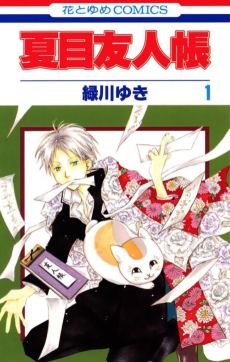 MANGA DramaNatsume Yuujinchou
MANGA DramaNatsume Yuujinchou MANGA ActionBakemonogatari
MANGA ActionBakemonogatari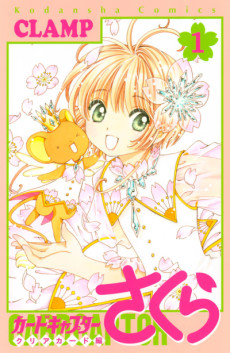 MANGA AdventureCardcaptor Sakura: Clear Card-hen
MANGA AdventureCardcaptor Sakura: Clear Card-hen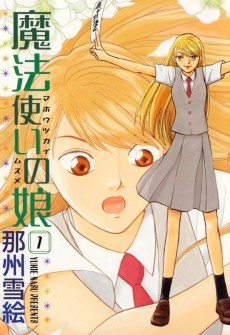 MANGA ComedyMahoutsukai no Musume
MANGA ComedyMahoutsukai no Musume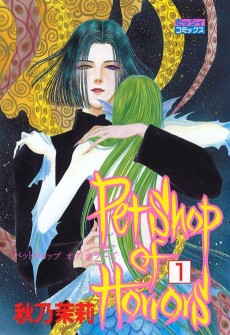 MANGA ComedyPetshop of Horrors
MANGA ComedyPetshop of Horrors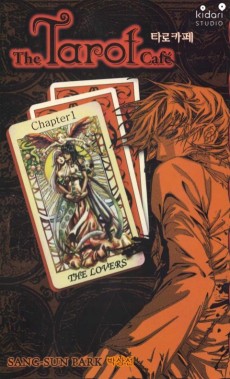 MANGA DramaThe Tarot Café
MANGA DramaThe Tarot Café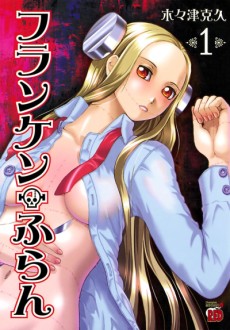 MANGA ComedyFranken Fran
MANGA ComedyFranken Fran
SCORE
- (4.1/5)
MORE INFO
Ended inFebruary 9, 2011
Favorited by 1,175 Users


